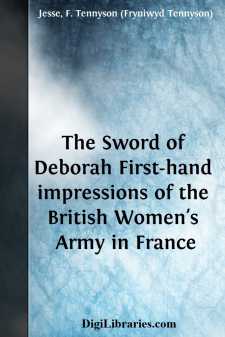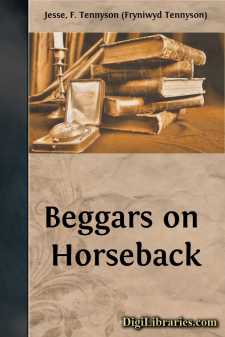Categories
- Antiques & Collectibles 13
- Architecture 36
- Art 48
- Bibles 22
- Biography & Autobiography 813
- Body, Mind & Spirit 142
- Business & Economics 28
- Children's Books 15
- Children's Fiction 12
- Computers 4
- Cooking 94
- Crafts & Hobbies 4
- Drama 346
- Education 46
- Family & Relationships 57
- Fiction 11828
- Games 19
- Gardening 17
- Health & Fitness 34
- History 1377
- House & Home 1
- Humor 147
- Juvenile Fiction 1873
- Juvenile Nonfiction 202
- Language Arts & Disciplines 88
- Law 16
- Literary Collections 686
- Literary Criticism 179
- Mathematics 13
- Medical 41
- Music 40
- Nature 179
- Non-Classifiable 1768
- Performing Arts 7
- Periodicals 1453
- Philosophy 64
- Photography 2
- Poetry 896
- Political Science 203
- Psychology 42
- Reference 154
- Religion 513
- Science 126
- Self-Help 84
- Social Science 81
- Sports & Recreation 34
- Study Aids 3
- Technology & Engineering 59
- Transportation 23
- Travel 463
- True Crime 29
The Sword of Deborah First-hand impressions of the British Women's Army in France
Description:
Excerpt
CHAPTER I
A.B.C.
This world of initials ... in which the members of the British Expeditionary Force live and move—it is a bewildering place for the outsider. Particularly to one who, like the writer, has never been able to think in initials, any more than in dates or figures. The members of the B.E.F.—and that at least is a set of letters that conveys something to all of us—not only live amidst initials, but are themselves embodied initials. To them the string of letters they reel off is no meaningless form, no mere abracadabra to impress the supplicant, but each is a living thing, coloured, definitely patterned, standing for something in flesh and blood, or stone and mortar; something concrete and present to the mind's eye at the mere mention.
Just as, to anyone who does not know New York, it seems as though all the streets must sound exactly alike, being merely numbered, while, to anyone who knows them, the words East Sixty First, say, are as distinct from East Twenty First, distinct with a whole vivid personality of their own, as Half Moon Street from Threadneedle Street—so, to the initiate in the game, the letters so lightly rattled off to designate this or that official or institution stand for vivid, real, colourable things.
But at first one is reminded forcibly of that scene in "Anna Karenina" where Levin proposes to Kitty for the second time by means of writing in chalk on a table the letters "W, y, t, m, i, c, n, b, d, t, m, n, o, t," and Kitty, with great intelligence, guesses that they mean "When you told me it could never be, did that mean never, or then?" Kitty, if you remember, replies in initials at almost equal length, and Levin displays an intelligence equal to hers. I had always found that scene hard of credence, but I have come to the conclusion that Levin and Kitty would have been invaluable at H.Q.B.R.C.S., A.P.O. 3, B.E.F.
And the fog of initials is symbolic in a double manner; for not only do the initials stand for what they represent to those who know, but in their very lack of meaning for those who do not, they typify with a peculiar aptness the fact that after all we at home in England, particularly we ladies of England who live at home in ease, know very little indeed of even what the letters B.E.F. stand for. We have hazy ideas on the subject. Vaguely we know, for instance, that there are women, lots of women, working out in France, though quite at what, beyond nursing, we don't seem to know. Motor drivers ... of course, yes, we have heard of them. There is a vague impression that they are having the time of their lives, probably being quite useful too ... but of the technique of the thing, so to speak, what do we know? About as much as we know when we first hear the clouds of initials rattling like shrapnel about our heads if we go over to France.
And if we at home know so little, how can other countries know, who have no inner working knowledge of English temperaments and training to go upon as a rough guide to at least the probable trend of things?...





